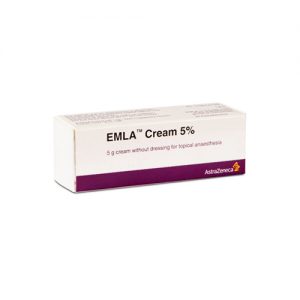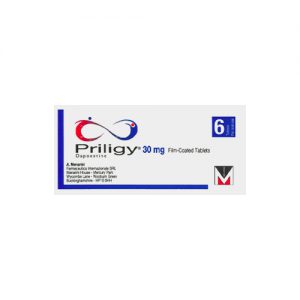Showing 2 products
Pagination
What is Premature Ejaculation?
What counts as premature ejaculation depends on the individual and their partner, but from a medical perspective, it’s defined as ejaculation occurring no more than 60 to 90 seconds following penetration.
It’s most common in younger men. Occasional instances of PE aren’t anything to worry about, but if it happens often, you might want to consider getting treatment.
What causes Premature Ejaculation?
There are several physical and psychological factors that can trigger PE. For example, physical causes can include problems with the thyroid or prostate, or the use of recreational drugs.
Some men also have hypersensitivity in certain areas, making them more prone to PE. Psychological causes can range from stress and depression to performance anxiety and relationship issues.
What treatments are there for Premature Ejaculation?
There are a number of treatment options to help control and prevent PE, including self-control techniques, counselling and wearing thick condoms to reduce sensation. If you are in a relationship, you might want to consider having couples therapy.
There are also medicines available that may help. For example, here at Access Doctor as part of our men’s health range, we offer EMLA Cream, a topical anaesthetic that can be applied directly to the penis. We also offer Priligy (dapoxetine hydrochloride). This prescription medicine is a serotonin reuptake inhibitor (SSRI) which inhibits your body’s impulse to orgasm.
Take a look at our range today to find the right treatment for you, and don’t hesitate to contact our team if you have any questions.
How Does Ejaculation Work?
Ejaculation is the process in which semen is expelled from the male body. This sexual response occurs due to stimulation of nerve endings in the penis and brain. When sexually stimulated, signals are sent from the brain down to the reproductive organs and contractions in the pelvic area cause an emission of semen, or ejaculate. The contraction then forces this seminal fluid to escape through small tubes called vas deferens to collect in the urethra. A final contraction during expulsion allows for the forceful ejection of semen from the penis.
Ejaculation can be voluntary or involuntary; however, generally speaking it follows a predictable pattern that has two phases- emission and expulsion. Emission happens when sperm and seminal fluid travel from the testes and move towards the urethra. During this time, muscles of both used and unused portions of vas deferens will contract to help push sperm along. The second stage starts as a powerful feeling that comes with strong muscle contractions near your anus that intensify until you ejaculate - otherwise known as “ejection” or “expulsion” phase. Towards completion, as many as two or three further muscular contractions occur involving different muscles throughout your pelvic floor that result in release of semen.
What exactly is the meaning of premature ejaculation?
A man is said to have premature ejaculation if he ejaculates sooner during the course of sexual activity than either he or his partner would like. If something like this happens on a regular basis and causes you distress, then it is likely a medical condition rather than just an occasional occurrence that doesn't warrant concern.
What are the causes of Premature Ejaculation?
It is believed that premature ejaculation is brought on by a confluence of physiological, psychological, and environmental factors; however, the precise reason for this condition is not completely understood.
1. Psychological Causes
Ejaculation, sexual interest, and arousal are just a few of the many aspects of sexual function that are heavily influenced by the mind. Ejaculating too soon can be caused by a number of different psychological factors, including the following:
Early Sexual Experiences: Some theories suggest that early sexual experiences may establish a pattern that can be difficult to change later in life. For example, situations in which you may have felt rushed to reach climax in order to avoid being discovered are examples of patterns that may have been established as a result of early sexual experiences.
Abuse Sexual: A person's sexual function can be negatively impacted by past trauma, including sexual abuse, which can also contribute to premature ejaculation.
Negative feelings about one's own body and sexual prowess can create a sense of anxiety around sex, which can lead to premature ejaculation. This can be caused by having a poor body image and having low self-esteem.
Mental health conditions such as depression and anxiety can have a negative impact on sexual performance. It is possible for a man to experience premature ejaculation if he is anxious about how well he performs sexually. Both sexual desire and function can be negatively impacted by depression.
Guilt and Worry: Feelings of guilt about sex or worry about sexual performance can lead to a cycle of anxiety and premature ejaculation. Anxiety and premature ejaculation can lead to a vicious cycle.
High levels of stress can disrupt the normal function of the body's nervous system, which can result in premature ejaculation.
2. Biological Causes
There are a number of biological factors that could be to blame for premature ejaculation, including the following:
Disturbances in Hormone Levels: Disturbances in hormone levels, particularly testosterone levels, have been shown to have an effect on ejaculation.
Inherited Traits It is possible that certain men have a genetic predisposition to experience problems with premature ejaculation.
Abnormally High or Low Levels of Neurotransmitters Neurotransmitters are chemicals that are responsible for the transmission of signals in your brain. The beginning of ejaculation can be affected by an imbalance in any of these chemicals, but particularly serotonin.
Inflammation and Infection: Premature ejaculation can be caused by inflammation or infection of either the prostate or the urethra.
Trauma to the Nerves: Trauma to the nerves that are involved in the ejaculatory process can cause premature ejaculation. This may be the result of an injury or surgical procedure, most commonly prostate surgery.
It is essential to keep in mind that these potential causes are not exclusive of one another. For instance, a man may experience premature ejaculation for a number of
reasons, including anxiety (which is a psychological factor) and an imbalance in the levels of serotonin (a biological factor). Understanding and treating premature ejaculation typically requires the assistance of a trained medical professional who can perform a comprehensive evaluation on the patient.
What are the signs and symptoms of an early ejaculation?
There are a few more nuances to this condition, but the primary symptom of premature ejaculation is an inability to delay ejaculating during sexual activity. This is the primary symptom of premature ejaculation.
- Rapid Ejaculation: This is the primary symptom of premature ejaculation, and it typically refers to ejaculation that takes place within one minute of vaginal penetration. Premature ejaculation is a sign that a woman's ovaries are not fully developed. However, this condition can be diagnosed in any circumstance in which a man believes he does not have sufficient control over ejaculating. The most important thing to consider is whether or not both the man and his partner are upset or discontent with the current situation.
- A Pattern That Is Frequent Or Recurrent: Occasional premature ejaculation is Usually Not a Cause for Concern, but a pattern that occurs frequently or repeatedly should be. It is possible that you have a pattern of premature ejaculation if between fifty and sixty percent of your sexual encounters over the past half a year have involved ejaculating before the desired time.
- Lack of ejaculatory control: One more important symptom is an inability to control ejaculatory function. This means that ejaculation occurs frequently with minimal stimulation and before the person wishes, leading to a sexual encounter that is short and unsatisfactory for both partners. In addition, ejaculation may occur with minimal stimulation and before the person wishes.
- Negative Personal Consequences: This includes distress, embarrassment, frustration, and avoidance of sexual intimacy. The psychological aspects of premature ejaculation often have as much (or more) of an impact as the physical aspect. The resulting stress can create a cycle of anxiety and further premature ejaculation.
On the basis of these symptoms, premature ejaculation can be further subdivided into two different types:
This type of premature ejaculation (PE) is characterised by symptoms that have been present since the first sexual experience and continue to persist consistently or nearly consistently throughout life. Lifelong premature ejaculation is also known as primary premature ejaculation.
What are the treatment options for Premature Ejaculation (PE)
As the causes of PE can be both psychological and biological, the treatment approach can vary greatly depending on the individual. Here are some options:
1. Behavioural Techniques/ Behavioural therapy/Couples therapy
These are methods that you can do on your own that have the potential to assist you in delaying ejaculatory activity. It is important to note that premature ejaculation does not necessarily prevent individuals from engaging in satisfying sexual relationships. Here are a few considerations and strategies that may help:
Open communication: Talk openly and honestly with your partner about the issue. Discuss your concerns, feelings, and desires regarding sexual intimacy. Communication is key in any relationship and can help create a supportive and understanding environment
Mutual exploration: Focus on other aspects of sexual intimacy besides intercourse. Engage in activities such as foreplay, kissing, manual stimulation, oral sex, or using sex toys. By expanding the focus beyond penetration, both partners can experience pleasure and intimacy regardless of the duration of intercourse
Foreplay and arousal: Spend more time on foreplay to increase arousal levels before penetration. This can help build excitement and delay ejaculation. Experiment with different techniques and activities that bring pleasure to both partners
The "start-stop" technique: This technique involves the man or their partner stimulating the penis until they feel they are nearing ejaculation. At that point, stimulation is stopped, and pressure is applied to the base of the penis to reduce arousal. Once the urge to ejaculate subsides, stimulation can resume. This method can help in developing control over ejaculation.
The "squeeze" technique: Similar to the "start-stop" technique, this method involves squeezing the base of the penis when the man feels close to ejaculation. The pressure applied helps reduce arousal and delay ejaculation. After the urge to ejaculate decreases, sexual activity can resume.
Seeking professional help: If premature ejaculation continues to be a concern and affects your overall well-being and sexual relationships, consider consulting a healthcare professional. They can provide guidance, support, and recommend appropriate treatment options, such as therapy or medications, based on your specific situation
2. Topical Anaesthetics: Anaesthetic creams and sprays that contain a numbing agent, such as lidocaine or prilocaine, can be utilised as a treatment option for premature ejaculation. These products are applied to the penis just prior to sexual activity in order to lessen sensation and, as a result, assist in delaying ejaculatory release. It is possible that using a condom will help reduce the numbing effect felt by the other partner.
3. Oral medication: A number of medications can delay ejaculatory function. Antidepressants, analgesics, and phosphodiesterase-5 inhibitors are just some of the medications that are used to treat premature ejaculation, despite the fact that none of these medications have been specifically approved by the Food and Drug Administration to treat premature ejaculation.
Antidepressants: Particular antidepressants, in addition to topical anaesthetic creams, are often prescribed for the treatment of premature ejaculation. A delayed or delayed orgasm can be a side effect of certain antidepressants. Examples of medications that are known to cause a delay in ejaculation include those classified as selective serotonin re-uptake inhibitors (SSRIs),
Analgesics: Certain analgesic medications, such as Tramadol, are sometimes utilised in the treatment of premature ejaculation.
Phosphodiesterase-5 inhibitors: Some of the medications that are used to treat erectile dysfunction, such as sildenafil (Viagra), tadalafil (Cialis), and vardenafil (Levitra), might also help premature ejaculation.
4. Counselling: This approach, which is also known as talk therapy or psychological therapy, entails discussing your relationships and experiences with a mental health counsellor. These sessions are designed to help you find more effective ways to deal with stress and find solutions to problems, as well as reduce performance anxiety. When combined with medical treatment, counselling has the best chance of being beneficial to the patient.
5. Exercises for the Pelvic Floor If you have weak muscles in your pelvic floor, it may be difficult for you to delay ejaculating. These muscles can be strengthened through the practise of pelvic floor exercises, also known as Kegel exercises.
6. PDE5 Inhibitors: Some men who suffer from erectile dysfunction may also experience premature ejaculation. In such cases, using PDE5 inhibitors like sildenafil (Viagra), vardenafil (Levitra), or tadalafil (Cialis) may help.
Even though each of these treatments has the potential to be successful, it is essential to keep in mind that the treatment that is most successful will vary from person to person depending on their unique set of circumstances. This involves taking into account both the factors that lead to premature ejaculation as well as one's own preferences. It is always recommended to confer with a qualified medical expert in order to discuss the choice that is most appropriate.




We’re here to help.
Our friendly team is available to help Monday to Friday 9:00am - 5:00pm.
If you need urgent assistance, do not use this service. Call 111, or in an emergency call 999.


